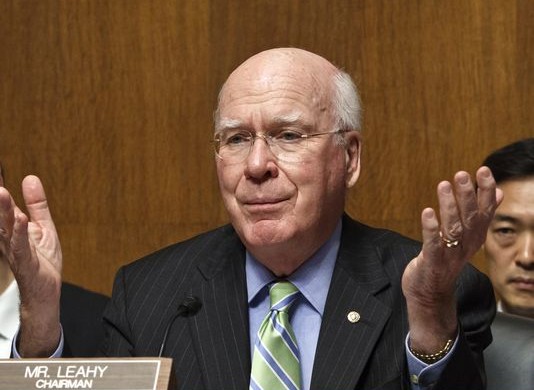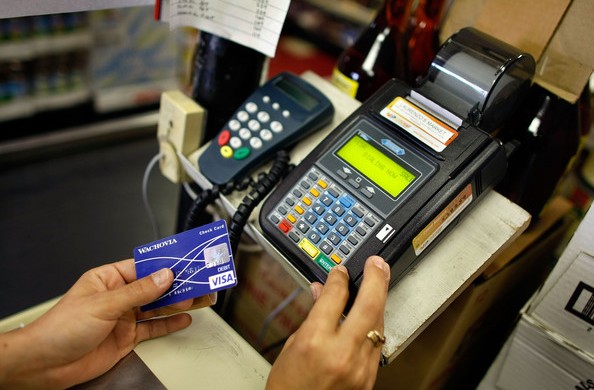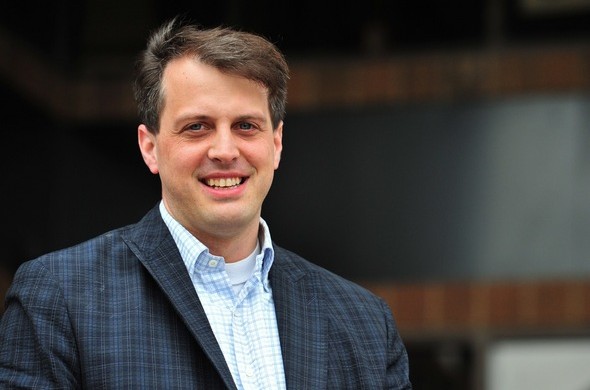
Nov 18, 2014 | Legalization
By Michael Komorn
(Updated from: Senate Hearing on Marijuana Scheduled for Today)
Senate Judiciary Committee Chair Patrick Leahy grilled James Cole, Deputy Attorney at the Department of Justice about such topics as whether the federal government would still seize the property of people who retail pot, can people who sell pot register their income for tax purposes, and can banks lend start-up capital to pot enterprises? Cole responded that his department was more concerned with dispensaries that work with drug cartels; dispensaries that export cannabis to states where it is still illegal; keeping stoned drivers off the streets; and keeping cannabis off of public lands and out of the hands of children.
Though Cole would not comment on whether his department would arrest someone for simply smoking marijuana, he did say that his department does not have the resources to go after such low level activities.
Some in attendance feared that legalization would lead to “Big Marijuana,” a long time fear of patients who currently use medical marijuana. Ironically, Medical Marijuana patients have historically opposed the legalization movement, namely out of fear that the marijuana industry will resemble Big Pharma, which sets exorbitant prices for their drugs. With the Obama administration continuing the Bush Policies of cracking down on medical marijuana dispensaries, caregivers, and even patients, the fear of arrest and prosecution may outweigh the fear of legalization leading to “Big Marijuana.”
Though it is unlikely that we will see legalization, or any real policy come into effect after this hearing, the fact that it was held, the discussion was had and questions were raised, is a good sign for marijuana advocates across the nation.

Nov 18, 2014 | Legalization
The city of Denver passed legislation this week that marks a major breakthrough in Colorado’s fledgling marijuana industry. The bill allows marijuana dispensaries to have normal relationships with their banks instead of having to rely on a cash only system. Now that marijuana businesses may accept checks and credit cards, it is believed that there will be fewer crimes, fewer people cheating on taxes, and will make it easier for owners to pay their employees and utility bills. Denver is the first city to pass such legislation, as many other cities within Colorado wait to see how the new system will work. Some of the key elements of the law include:
* Through Jan. 2016, only licensed medical marijuana businesses in good standing will be licensed to sell retail marijuana.
* Retail marijuana stores can share the same location with medical marijuana centers.
* Public hearings will be required before licenses are granted to retail facilities, but the hearings will be less restrictive than liquor licenses.
* Similar buffering to the medical marijuana laws will be in effect with no dispensaries allowed within 1,000 feet of a school, child care center, another marijuana facility, and drug and alcohol treatment facilities.
As Denver moves forward with the new system, the world will eagerly look on. This is a major breakthrough not only for cannabis advocates, but for the whole country as we usher in a new era of business and innovation to replace the violent and unconstitutional policy of prohibition of cannabis.

Nov 18, 2014 | Legalization, Michigan Medical Marijuana Act
In April of 2013, Representative Jeff Irwin introduced House Bill 4623 that would decriminalize the use and possession of up to one ounce of marijuana for all adult residents of Michigan. The bill was introduced in the wake of other decriminalization initiatives which passed in the cities of Detroit, Grand Rapids, Kalamazoo, Flint, and Ypsilanti. Representative Irwin, along with the majority of Americans, cites numerous studies showing that prohibition is not working, and that arresting, prosecuting, and incarcerating marijuana offenders comes at a huge cost to American tax payers.
Irwin believes that there is also a philosophical reason to decriminalize marijuana for adults, saying that, “America is a free country, individuals making personal lifestyle choices, if they are engaging in activities that are harming no one but themselves, that should be allowed.”
THE PROPOSAL
The punishment for possessing up to an ounce of marijuana would be a civil infraction and a fine, rather than the prospect of prison. First offenders would be fined $25, second offenders $50, with the cap of a $100 fine for individuals with three or more offenses. Michigan alone spends $325 million a year arresting, prosecuting, and incarcerating marijuana offenders, yet Marijuana is more readily available today than ever. By fining an individual, the state avoids these costs, and has a system in place to make a few easy bucks.
OVER ZEALOUS LAW ENFORCEMENT.
Coupled with the waste of money, and the philosophical debate on what freedom really stands for in America, we must think about the cost to the individual who uses marijuana in today’s prohibition society. Derek Cop was one such individual. When Derek was 20 years old, he was a student at Grand Valley State University. Derek sold small amounts of Marijuana from his apartment, and the police knew about this after several months of surveillance. One night, 12 officers stormed the apartment and shot Derek in the chest, leaving him in critical care. When he was loaded into the ambulance, an officer accompanied him to ensure that Derek, with a bullet hole in his chest, didn’t try anything. When he arrived at the hospital, an officer was in his room to greet him. Derek’s parents were unaware of what had happened to their son until they got a call at 2 AM from Derek, who explained that he had been shot by the police for selling marijuana. Derek laid in bed fearing that he would either die or go to prison.
MICHIGAN SHOULD JOIN THE MOVEMENT
What Representative Irwin has proposed is nothing radical; already, 16 states have passed decriminalization either through legislative action or ballot initiatives. These states include:
1) Alaska
2) California
3) Colorado
4) Connecticut
5) Maine
6) Massachusetts
7) Minnesota
8) Mississippi
9) Nebraska
10) Nevada
11) New York
12) Ohio
13) Oregon
14) Washington
15) North Carolina
16) Rhode Island
It has been repeatedly shown that voters are overwhelmingly in support of decriminalization.
A BIPARTISAN EFFORT
Republican Mike Shirkey agrees with Representative Irwin that it is “The right time to have this in Michigan.” The data is clear that prohibition efforts waste a lot of money, energy, resources to accomplish something that has completely, utterly failed. Shirkey believes that Government should protect people’s freedoms. In Shirkey’s eyes, the best government by and large, is a smaller less restraining government.
Further, keeping marijuana illegal has created a cash crop for the black market and violent, organized crime. Prohibition of alcohol in the 1930’s showed us what happens when you push a substance so popular with the public into the unregulated criminal world. Gang violence, organized crime, and murder rates soared as a result of prohibition. History has shown us that regulation, not prohibition, is the best way to deal with substances like alcohol and marijuana. It is high time that we decriminalized marijuana for adults in Michigan.
Nov 18, 2014 | Legalization
coalition of prominent Mexican leaders, including former ministers, businessmen, artists and a Nobel Prize-winning scientist, called for the government to decriminalize marijuana in an attempt to lower levels of gang violence and corruption.
Roughly 80,000 people have been killed since 2007 in turf wars between drug cartels as well as armed conflict with security forces. This shocking figure has led many prominent figures in Mexico to call for a change in policy from the U.S.-led war on drugs.
An advertisement ran in newspapers across Mexico that urged for the decriminalization of cannabis, and was put together by a diverse group of influential members of Mexican society.
Among those that signed off on the ad were several former ministers from the ruling Institutional Revolutionary Party, famous actors, Media Tycoon Ricardo Salina Pliego (one of Mexico’s richest men), and Nobel Laureate for chemistry, Mario Molina.
The ad argued that the continued poliy of prohibition made narcotics more lucrative for cartels, noted that many U.S. States had already decriminalized cannabis, and that Uruguay was on the verge of out right legalization.
Since 2007, about 80,000 people have been killed in turf wars between drug cartels and their clashes with security forces, leading to calls for a change in policy in Mexico and elsewhere in the U.S.-led war on drugs.
The advertisement which argued for the decriminalization of cannabis was put together by one of the most diverse coalitions pushing for change in Mexico. Those lobbying included a number of influential figures in public life.
Among the signatories were several former ministers from the ruling Institutional Revolutionary Party, famous actors, media tycoon Ricardo Salinas Pliego, one of Mexico’s richest men, and 1995 Nobel laureate for chemistry, Mario Molina.
The ad argued that criminalization made narcotics more lucrative for cartels, noted that a number of U.S. states had liberalized marijuana laws and that Uruguay’s Congress was taking steps to legalize the cultivation and sale of the drug.
In 2009, Mexico passed legislation which made it legal to carry up to 5 grams of marijuana, 500 milligrams of cocaine, and very small amounts of heroin and methamphetamines. In spite of that step away from prohibition, then President Felipe Calderon vowed to rid Mexico of its violent cartels by sending in heavily armed forces to fight them. When Calderon introduced these security forces, violence skyrocketed and nearly 70,000 people were killed in drug related crime on his watch.
Mexico’s current President, Enrique Pena Nieto, has vowed to reduce the killings, and while they have gone down, roughly 1,000 people are killed in drug-related gang activity every month. Nieto has expressed that he opposes any relaxation of drug laws in Mexico, though said he is willing to debate the matter. With such influential members of Mexican society as former presidents, a Nobel Laureate, and some of the country’s wealthiest individuals calling for reform, that debate could happen sooner rather than later. Mexico City has already passed other liberal legislation such as legalizing gay marriage, and the ad touched on that as well, stating that, “Public opinion in the capital is increasingly tolerant of individual choices and could also be regarding marijuana use, with a view to a more complete regulation in future.”
Senior officials in the Party of the Democratic Revolution, which runs Mexico City, say the party could put forward a proposal to relax marijuana laws in the capital later this year.

Nov 18, 2014 | Legalization
Colorado made history yesterday when it accepted the first applications for recreational marijuana stores. The applications were submitted by appointment only to avoid the overwhelming rush of people wanting to open store fronts, grow facilities, and infused-products operations. Overall, 99 applications have been received, with 23 accepted as of yesterday. More applications are expected in the coming weeks and months as the US takes another giant leap forward in its policy toward marijuana. Meanwhile, in Michigan, the Oakland County Narcotics Enforcement Team is doing everything it can and using tax payer dollars to make void the signatures that Andrew Cissell collected to legalize cannabis in Ferndale; Senior citizens are being raided and charged with multiple felonies for using marijuana; College students are being shot by police for selling marijuana from their apartments to their friends; a bill that would force welfare recipients to take drug tests and perform 20 hours of community service a week could be passed; and around 500 Michiganders are killed each year by drunk drivers. Colorado, we salute you.

Nov 18, 2014 | Legalization
Four states have pending legislation to legalize medical marijuana. As more and more states debate whether to permit the medical use of cannabis, it will be interesting to see whether the caregiver or dispensary model, or some mixture of both, will prevail. Pressure will mount on the Federal Government to change the scheduling of cannabis as a majority of the country adopts medical marijuana legislation. I believe the tipping point will be 26 medical marijuana states. The rescheduling of cannabis is well over due and will prevent so many people from the undue suffering that comes from the arcane policy of prohibition and ignorance. Many of the world’s top scientists, professionals, and government leaders have woken up to the reality that prohibition does more harm than good. As more states adopt medical marijuana legislation, we could see the rescheduling of cannabis, and the broader war on drugs, become a major issue in the next Presidential election.
| 1. Minnesota |
Senate Bill:
SF 1641 (175 KB)”Permitting the medical use of marijuana…specifying certain
limitations… [establishing] registry identification card…
authorizing cities to enact zoning regulations that limit use
of land for medical marijuana dispensaries…” |
House Bill:
HF 1818 (175 KB)”Marijuana medical use permitted, fees set, rule-making
authorized, criminal and civil penalties provided, and
money appropriated.” |
| 2. New York |
Senate Bill:
SB 1682 (100 KB)”Legalizes the possession, manufacture, sale, administration,
delivery, dispensing and distribution of [up to 8 oz of]
marijuana in connection with medical use thereof for
certified patients… permits registered organizations to sell,
administer, deliver, etc. marijuana to certified patients or
the caregiver of a certified patient for certified medical use…” |
Senate Bill:
SB 4406 (85 KB)”Legalizes the possession, acquisition, use, delivery, transfer,
transport or administration of marihuana by a certified patient
or designated caregiver for a certified medical use…” |
Assembly Bill:
AB 6357 (85 KB)”Legalizes the possession, acquisition, use, delivery,
transfer, transport or administration of marihuana
by a certified patient or designated caregiver for a
certified medical use…” |
| 3. Ohio |
House Bill:
HB 153 (250 KB)”A registered primary caregiver: A registered qualifying
patient or visiting qualifying patient for engaging in
the medical use of cannabis;… A registered primary caregiver.” |
|
| 4. Pennsylvania |
Senate Bill:
SB 770 (75 KB)”An Act providing for the medical use of marijuana;
and repealing provisionsof law that prohibit and
penalize marijuana use.” |
House Bill:
HB 1181 (75 KB)”An Act providing for the medical use of marijuana.” |





